Women at the centre of human rights media: ZMINA and the Institute of Journalism held a joint scientific conference
On 17 April 2025, the VII International Scientific and Practical Conference “Topical Issues of the Media Space” was held at the Educational and Scientific Institute of Journalism of Taras Shevchenko National University of Kyiv with the participation of human rights defenders, teachers, graduate students, students and journalists. Special attention was paid to the role of women in human rights journalism during the war and in the process of post-war reconstruction of Ukraine.
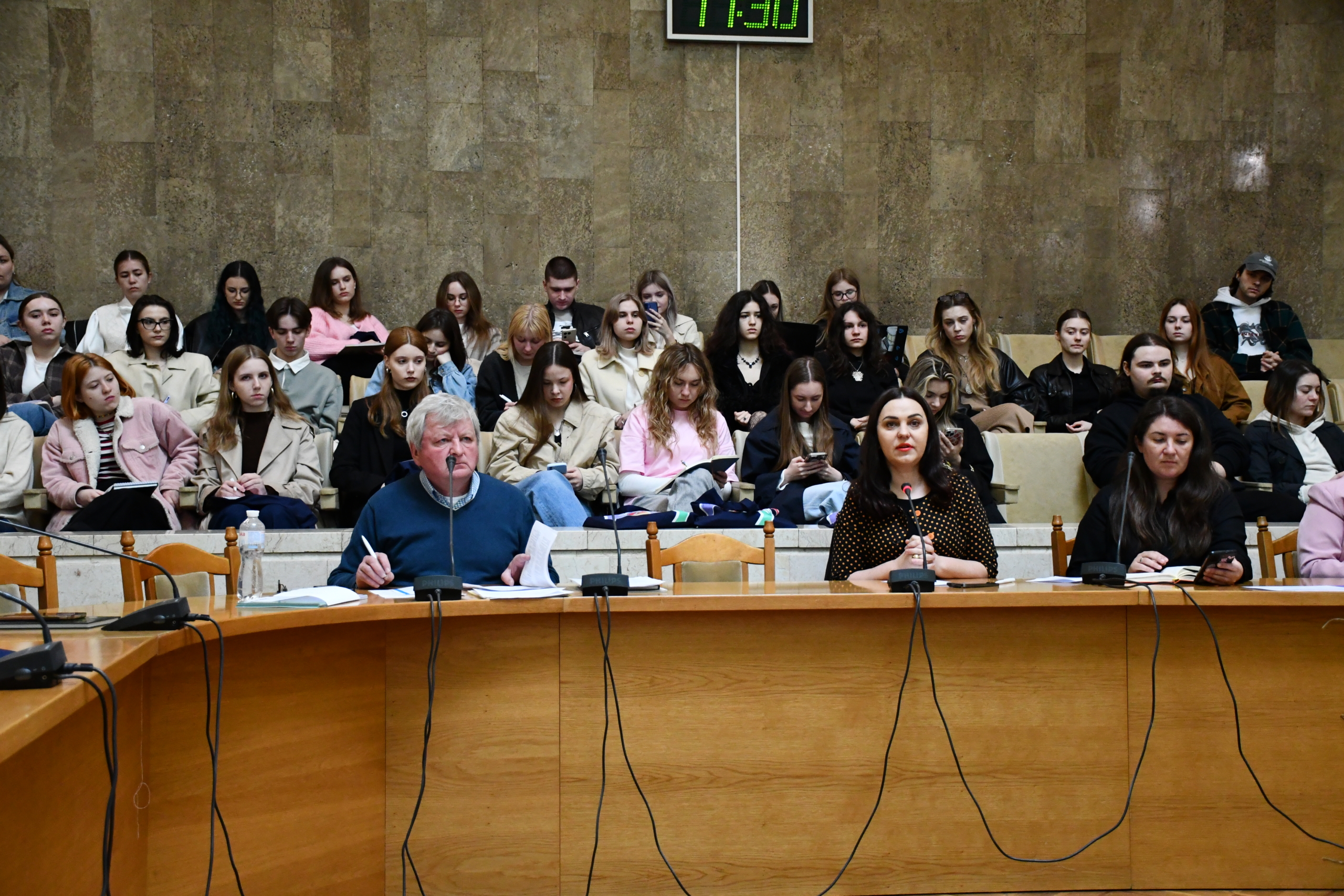 Kostiantyn Shenderovskyi, Tetiana Pechonchyk, Iryna Yuzyk
Kostiantyn Shenderovskyi, Tetiana Pechonchyk, Iryna YuzykThe Human Rights Centre ZMINA is implementing the initiative with the technical support of UN Women in Ukraine and with funding from the UN Women’s Peace and Humanitarian Fund (WPHF). The WPHF is a flexible and fast-track funding instrument that supports quality interventions aimed at strengthening the capacity of local women to prevent conflict, respond to crises and emergencies, and seize key peacebuilding opportunities.
The event was opened by human rights defender and Head of the Human Rights Centre ZMINA Tetiana Pechonchyk. In her speech, she stressed the importance of documenting human rights violations and the role of journalists in this process.
The human rights defender shared her personal story, which began 20 years ago when Tetiana started her career as a journalist specialising in human rights issues. She recalled numerous publications about unfair sentences, torture, deaths in pre-trial detention centres and indifference. She frankly admitted that the biggest challenge was to see the eyes of those she wrote about – people who expected changes after the publicity, but never got justice: “I realised that as a journalist, I could no longer just write. I had to act. I found myself at a rally near the Prosecutor General’s Office with a banner in my hands. That’s how I became an activist and human rights defender,” said Pechonchyk.
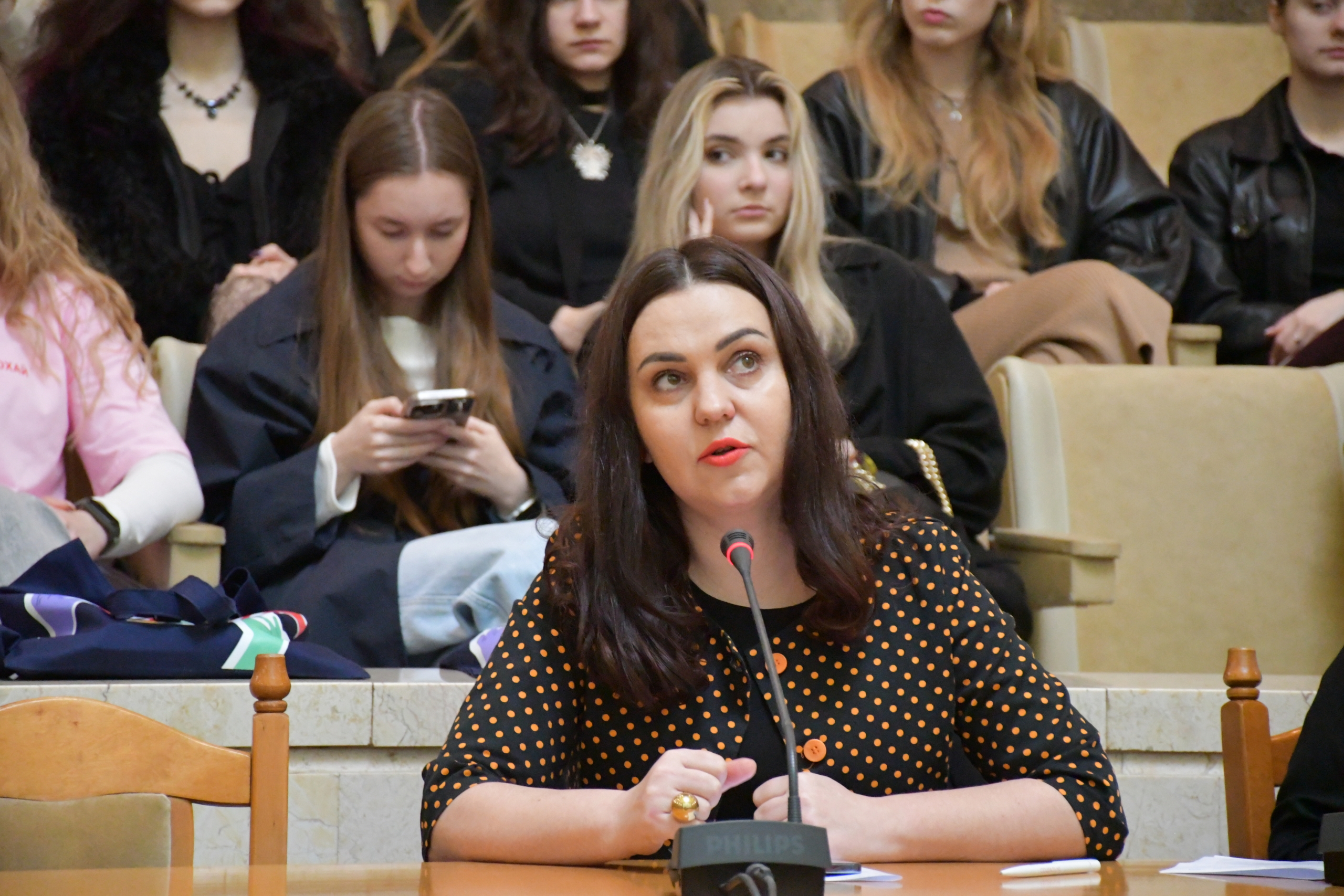 Tetiana Pechonchyk
Tetiana PechonchykThe Head of ZMINA stressed that the symbiosis of journalists and human rights defenders is very important today, as we cannot restore justice and punish the perpetrators through publications, but we can work to change the circumstances.
“These changes are about two things. First, people must know their rights, how to protect them, and where to turn for help. Second, the state mechanisms designed to protect human rights must work. To achieve this, we need reforms. That is why I have a very big appeal to you today to make this your mission – write about it, because we do not have enough energy and attention to write about the huge number of human rights violations, the worst Russian war crimes that are taking place,” Pechonchyk summarised.
During the conference, human rights defender and journalist Iryna Vyrtosu spoke in detail about the development of human rights journalism in Ukraine.
“I’ll allow myself to remind you a little bit of history. It was not an overnight process. It was a journey through doubts, discussions, and disputes. What should prevail – classical journalism or narrow, advocacy journalism that actively defends human rights?” said Iryna Vyrtosu.
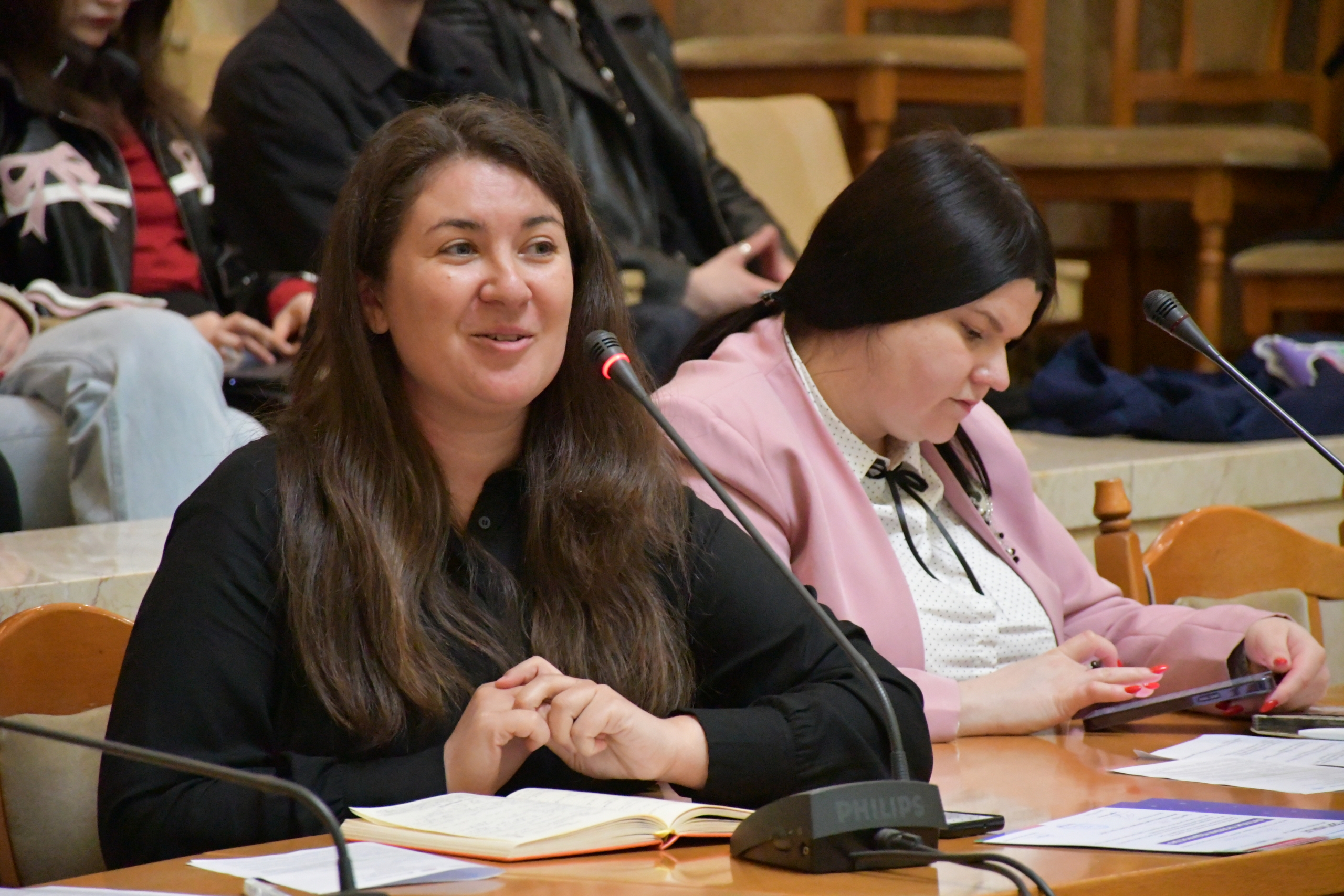 Iryna Vyrtosu
Iryna VyrtosuShe recalled that even before the Revolution of Dignity, in 2012-2013, there were professional discussions in the media about the limits of human rights journalism. Should such journalism remain neutral, or should it take the side of victims, support human rights defenders, and be the voice of those who are not heard?
“Imagine that back then, a single word could put you in jail. And those journalists who did not remain silent, who chose human rights as their professional and moral vector, risked their careers, freedom, and lives. They wrote about torture, discrimination, the occupation of Crimea, and sexual violence. What is now commonplace in the news feeds was a challenge back then,” Iryna Vyrtosu emphasised.
She called on the students to remember the names of those who stood at the origins of Ukrainian human rights journalism, those who created texts despite pressure, sought media lawyers to defend their colleagues, and defended the right to truth: “Human rights journalism did not emerge from a trend. It is the result of decades of fighting. We realised that one-off trainings are not enough. We need systematic work, because people change their profession and move to other areas. But the memory and professional standards must remain“.
The conference paid special attention to the role of women journalists in the field of media and human rights. The event featured a panel discussion “The Mission and Role of Women Journalists in Human Rights: Documentation and Media”, organised by the Human Rights Centre ZMINA with the participation of Tetiana Bezruk, Head of Civil Society Protection of the Human Rights Centre ZMINA and journalist of NV (New Voice), Olha Padiriakova, Editor-in-Chief of the ZMINA website, and Elina Sulima, a journalist specialising in war crimes. The discussion was moderated by Iryna Yuzyk, ZMINA’s project manager with ten years of experience in journalism.
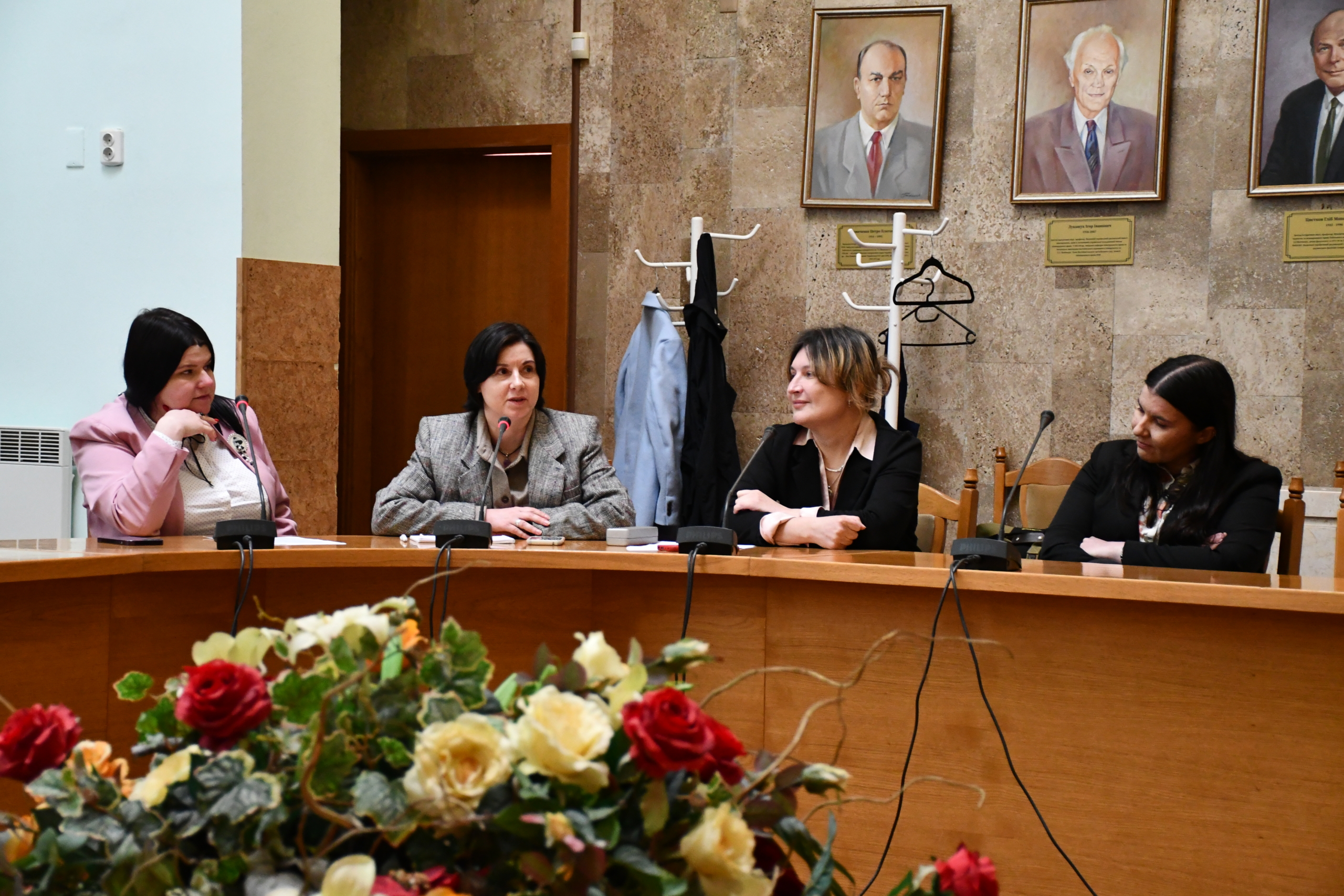 Iryna Yuzyk, Elina Sulima, Olha Padiriakova, Tetiana Bezruk
Iryna Yuzyk, Elina Sulima, Olha Padiriakova, Tetiana BezrukOne of the central issues of the discussion was the documentation of war crimes and crimes against civil society. ZMINA representatives explained how this multi-level and sensitive work is structured: from collecting testimonies to publications, international advocacy, and even providing practical support to victims. Particular attention was paid to discussing the work with sensitive topics, especially in situations involving torture, ill-treatment, and sexual violence.
During the discussion, an important point was made that today the media are becoming not just a tool for informing, but a real tool for fighting for human rights and a way to preserve memory, archive and memorialise.
They also discussed how human rights journalism contributes to the restoration of justice: not only for victims of war crimes, but also for society as a whole.
The scientific conference ended with an inspiring speech by human rights defender, the Head of the Centre for Civil Liberties and the Nobel Peace Prize 2022 winner, Oleksandra Matviichuk.
Her speech sounded like a call to understand the depth of the changes that the world is experiencing today. Matviichuk stated that the system of international law designed to protect human rights is on the verge of collapse. The norms established after the Second World War are no longer working, and this poses a threat not only to Ukraine but to the whole world.
“We are at the centre of this civilisational breakdown,” she said.
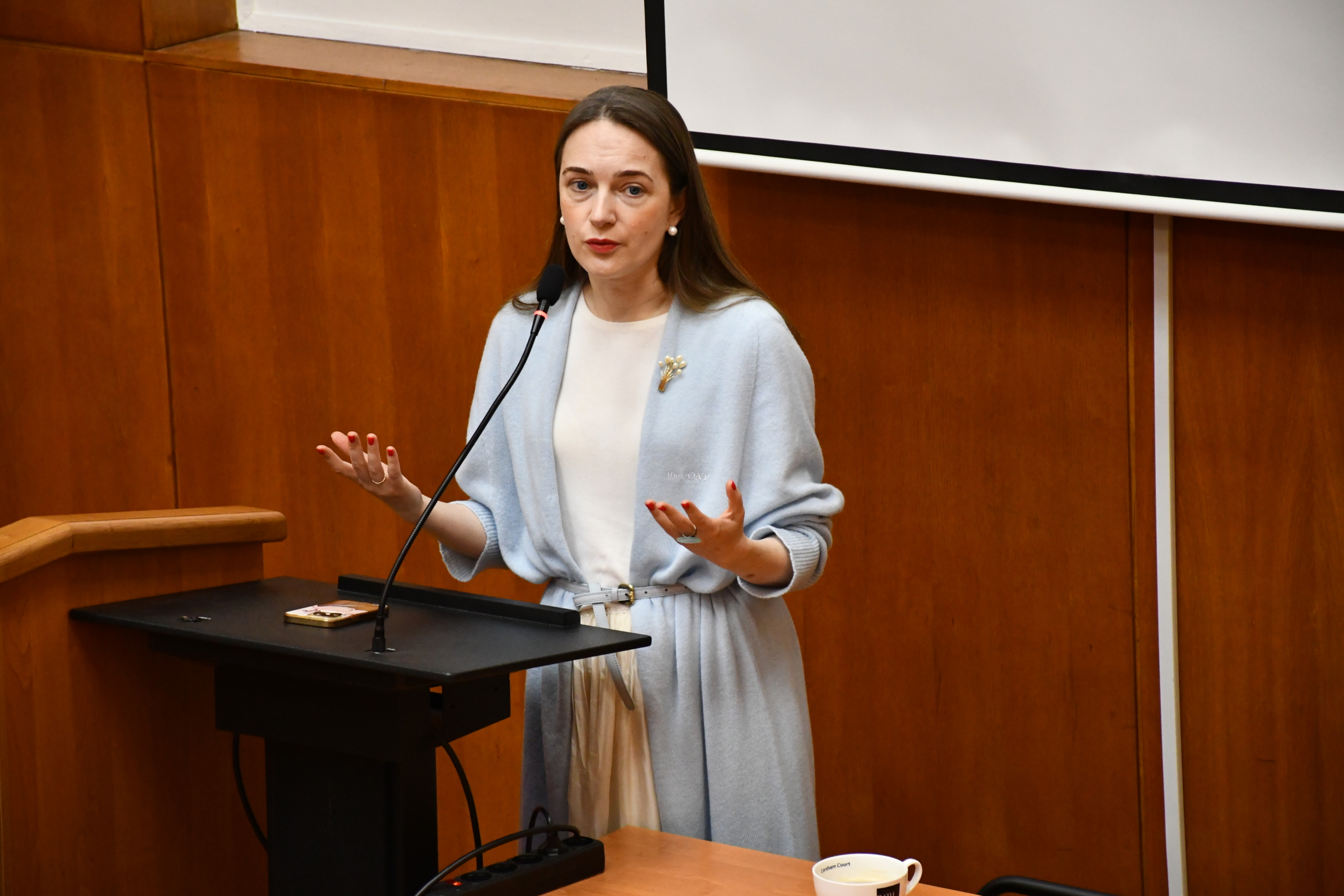 Oleksandra Matviichuk
Oleksandra MatviichukOleksandra paid particular attention to the concept of human rights themselves, which, according to her, is often perceived superficially. People call their own desires “rights”, not realising that human rights are primarily about protecting those who are in the minority, about a barrier that restrains the arbitrariness of the majority. These are the 30 articles of the Universal Declaration of Human Rights, which should serve as living norms, not just declarations on paper.
“Human rights are about something good against everything bad. But their true essence is revealed when the minority is able to defend itself against the majority,” the human rights defender stressed.
Matviichuk made a separate appeal to students, the journalistic community and human rights defenders, stressing that today journalists and activists bear not only the information burden but also moral responsibility. They are the voices of truth in times of war, those who stand between powerlessness and hope, between crime and memory.
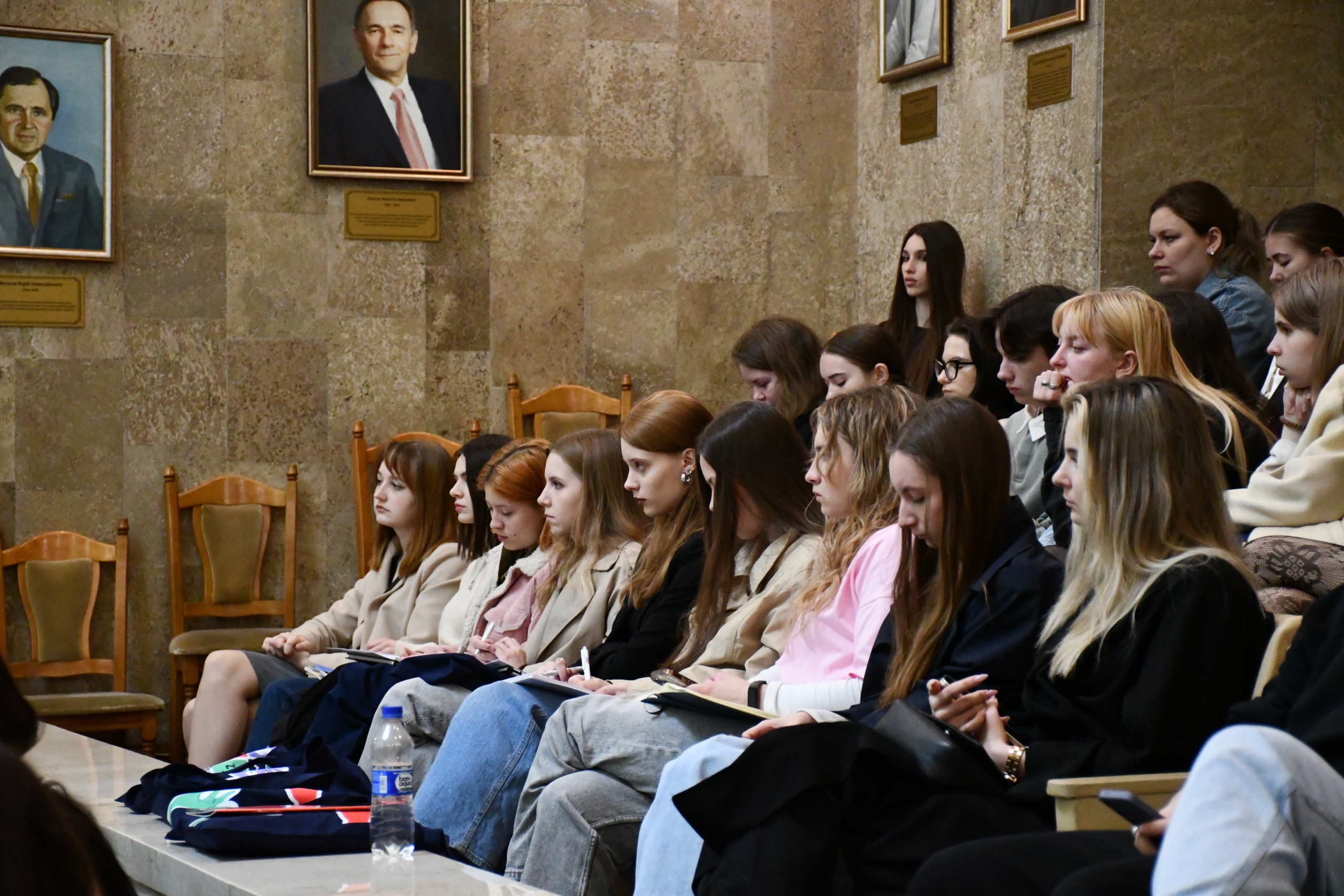 Students of the Educational and Scientific Institute of Journalism of Taras Shevchenko National University of Kyiv
Students of the Educational and Scientific Institute of Journalism of Taras Shevchenko National University of KyivThis publication was prepared with the financial support of the United Nations Women’s Peace and Humanitarian Fund (WPHF). However, the views and content expressed herein do not reflect the official position or endorsement of the United Nations.
The United Nations Women’s Peace and Humanitarian Fund (WPHF) is the only global mechanism created exclusively to support women’s participation in peace and security processes and humanitarian assistance. Governed by a range of civil society, government and UN actors, the WPHF is a multi-partner trust fund that mobilises urgently needed funding for local women-led organisations and works with women on the frontlines to build lasting peace. Since 2016, WPHF has provided funding and capacity building to more than 1,000 local women’s civil society organisations working on the Women, Peace and Security agenda and implementing humanitarian activities in 41 crisis-affected countries.
If you have found a spelling error, please, notify us by selecting that text and pressing Ctrl+Enter.















